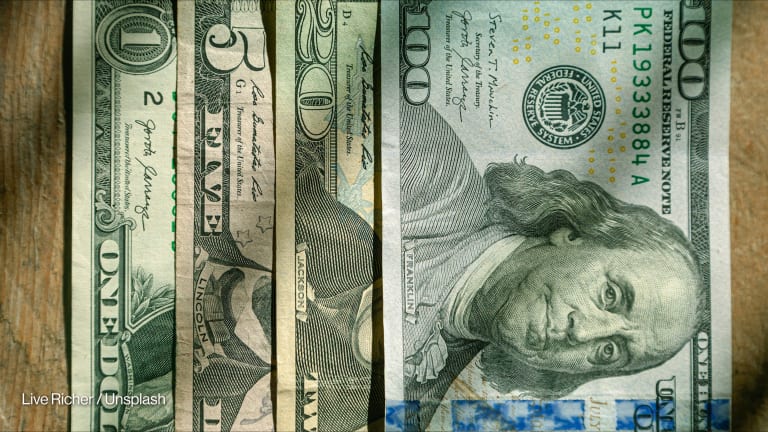Tracking gender equality funding: What 2 major donors did in 2020
Devex zooms in on Global Affairs Canada and the Bill & Melinda Gates Foundation to explore their funding for gender equality in 2020.
Gender equality is gaining prominence across development projects, but following the money behind efforts to achieve Sustainable Development Goal 5 is challenging. The Organisation for Economic Cooperation and Development’s gender equality marker — a tagging tool used by donors to categorize gender equality-related development activities — has shown a slow increase over the past decade or so. Nonetheless, in 2018, only 8% of official development assistance targeted gender equality as the core purpose of the assistance. The vast majority of gender-tagged projects included gender equality components but it wasn’t the principal goal. Additionally, not all donors screen projects against this marker, which adds to the complexity of assessing spending in this area. Oxfam published a report last year that questioned the effectiveness of this methodology, given the gap found between the donor’s self-reported funding figures and the quality of the gender projects. New research is underway to improve the publication of gender financing and programmatic data. Devex takes a deep dive into the 2020 grant awards of two donors well-known for their focus on gender equality — Global Affairs Canada and the Bill & Melinda Gates Foundation — to explore their goals and identify main partners. <iframe class="wp-embedded-content" sandbox="allow-scripts" security="restricted" src="https://public.flourish.studio/visualisation/3051027/embed#?secret=6JyEZWrkty" data-secret="6JyEZWrkty" frameborder="0" scrolling="no" height="575" width="700"></iframe> Source: Publish What You Fund Global Affairs Canada Canada’s feminist foreign policy, launched in 2017, committed Global Affairs Canada to allocate 15% of its bilateral international assistance to specifically target gender equality, with the aim that by 2022, 95% of its total assistance will target or integrate gender equality policies. Taking a look at the grants and contributions published by GAC in its open portal in 2020, 27% of the records include the words “gender activity.” Among them, Devex identified 31 projects worth over $273 million Canadian dollars ($210 million) specifically focusing on gender equality and women’s empowerment in lower-income countries. Projects that referenced gender equality but didn’t have it as the main goal, were largely volunteer placement programs that aim to increase Canadians' participation in international development. An exception is the Oxfam-Quebéc Equality in Action volunteer program worth CA$50 million. It focuses first on strengthening the performance of 72 women's rights organizations and secondly on fostering Canadians participation abroad. Most projects primarily or exclusively focused on gender equality were awarded to Canadian branches of well-known INGOs. Aga Khan Foundation Canada received two grants worth CA$49 million each to strengthen “the delivery of quality, gender-responsive, and inclusive education” in five African countries and across Asia. Save the Children Canada got contributions of CA$12.1 million to reduce child, early, and forced marriage in Burkina Faso and Sierra Leone and CA$10.5 million to increase gender-responsive and inclusive education for girls and women along the Colombian border region with Venezuela. World Vision Canada, CARE Canada, and Plan International Canada were also recipients of funding targeting gender equality, receiving grants worth over CA$4.8 million each. A few organizations based locally also received funding to tackle gender inequalities. In Bangladesh district, Chittagong Hill Tracts, BRAC aims to improve women and girls’ education and economic empowerment with a CA$5 million contribution. In Tanzania, HakiElimu received CA$4.5 million to address the barriers to quality and safe education for girls through a program that involves both the government and communities. Together with girls’ education, support for local women’s rights organizations was the other main gender priority funded by GAC through local organizations. The Philippine Business for Social Progress received CA$8 million to support Filipino women's right organizations’ management and effectiveness in its advocacy efforts and the Kvinna till Kvinna Foundation got CA$1.7 million to support Syrian grassroots women's right organizations. In Mozambique, a similar project is run by the Centro de Aprendizagem e Capacitação da Sociedade Civil with a CA$8.2 million budget. United Nations agencies compose the third group of gender-specific financing recipients. CA$3.9 million was granted to United Nations Development Programme to support the Lebanon crisis response plan’s implementing partners in gender-responsible policymaking. The World Food Programme received CA$4 million to use a women’s economic empowerment approach in supporting Nicaraguan smallholder farmers. Bill & Melinda Gates Foundation In 2018, the Gates Foundation launched its first gender equality strategy committing $170 million to women’s economic empowerment. In 2019, it granted $33.8 million under its gender equality program. And last year, the foundation appointed its first president of gender equality to lead the gender equality teams, as well as a broader gender integration agenda across programs. The foundation is also a major funder of family planning work: In 2019 alone, its family planning grants accounted for $240 million, but these are not included here as gender equality is not identified as the main goal of those grants. Bearing in mind that at this time of the year the award data published on its website might not be fully complete for 2020, Devex managed to identify 15 gender-specific grants with a global development approach awarded in 2020, totaling $39 million. The largest piece of funding focused on gender equality in this focused list is a $10 million grant to the New Venture Fund to support the leadership development of mid-career women in global health. Unlike GAC, the Gates’ funding is directed more to research, evidence building initiatives, and leveraging the impact of forums and platforms. The United Nations Foundation and Apolitical, for instance, received separate grants to advance Generation Equality Forum commitments and support government policymakers in developing those. Along similar lines, the U.S.-based development implementer Nathan Associates, Inc. was awarded $1.6 million to “increase the salience of gender equality ... within priority countries and influential regional and global forums and institutions”. The International Center for Research on Women in Washington D.C. also received $1.9 million to “establish a central global hub to elevate evidence on women's economic empowerment into policy action and increased funding with major global forums, institutions, and donor countries.” The majority of the 2020 gender-equality grants are focused on research studies and data collection and analysis. The foundation is supporting several international organizations’ work in this area, including the World Bank’s “statistical operations to engender surveys” and the CGIAR Gender Research Platform, with $3.2 million and $4.9 million grants respectively. The International Labour Organization received two grants under $1.5 million each to explore and measure women’s informal work and their access to digital labor platforms. A handful of local research organizations and universities were also Gates Foundation grantees in 2020. The highest amount, $4 million, was granted to Kenyatta University to build an in-country research and evidence hub for evaluative testing and analysis on women’s empowerment. In the $1 million-$2 million range, the Ethiopian Economics Association received a grant to identify what drives the gender profitability gap, and the Development Research and Projects Centre in Nigeria to strengthen gender-equality advocacy efforts. Meanwhile, ActionAid USA received a $1.5 million grant to “increase the use of evidence on what works to advance women's economic empowerment to inform policies and programs in East Africa” and Publish What You Fund received a $1.2 million grant to increase the impact of donor funding on gender equality. For access to gender equality grant awards and funding opportunities from over 850+ sources — combined with Devex Pro news content — sign up for Pro Funding or get in touch to learn about our Pro Funding group options.
Gender equality is gaining prominence across development projects, but following the money behind efforts to achieve Sustainable Development Goal 5 is challenging.
The Organisation for Economic Cooperation and Development’s gender equality marker — a tagging tool used by donors to categorize gender equality-related development activities — has shown a slow increase over the past decade or so. Nonetheless, in 2018, only 8% of official development assistance targeted gender equality as the core purpose of the assistance. The vast majority of gender-tagged projects included gender equality components but it wasn’t the principal goal. Additionally, not all donors screen projects against this marker, which adds to the complexity of assessing spending in this area.
Oxfam published a report last year that questioned the effectiveness of this methodology, given the gap found between the donor’s self-reported funding figures and the quality of the gender projects. New research is underway to improve the publication of gender financing and programmatic data.
This story is forDevex Promembers
Unlock this story now with a 15-day free trial of Devex Pro.
With a Devex Pro subscription you'll get access to deeper analysis and exclusive insights from our reporters and analysts.
Start my free trialRequest a group subscription Printing articles to share with others is a breach of our terms and conditions and copyright policy. Please use the sharing options on the left side of the article. Devex Pro members may share up to 10 articles per month using the Pro share tool ( ).
Raquel Alcega leads the data research and analysis at Devex, providing advice to organizations on the latest funding and programmatic trends that shape the global development space. She also heads up the news business content strategy and designs internal knowledge management processes. Prior to joining Devex’s Barcelona office, she worked in business development in Washington, D.C., and as a researcher in Russia and Mexico.








